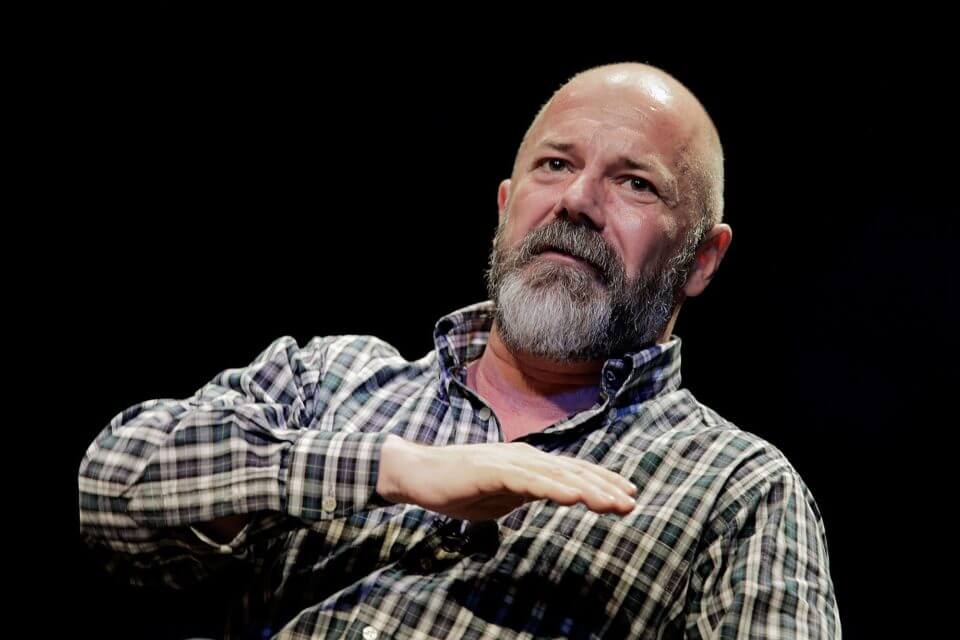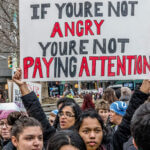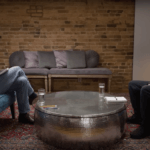
“But now, being made ‘uncomfortable’ or being associated with unpopular company is sufficient reason to abandon principle.”
We are living in the age of impossible cowardice. It seems that people are taking a knee at the altar of popular opinion, terrified of what may come if they do not. Last year, the NBA notoriously prevented fans from voicing support for Hong Kong out of fear of losing Chinese sponsors. Major American companies including Apple, Blizzard Entertainment, and Zoom also acted as overseas censors on behalf of the Chinese Communist Party.
While the growing threat of foreign government censorship is ominous and disturbing, many people are finding themselves more likely to be targeted by domestic activists with an ideological axe to grind. Also, they are discovering fewer and fewer colleagues and friends willing to back them. As examples of “cancel culture” accumulate, Harper’s Magazine published an open letter earlier this month reminding us not to lose sight of the basic principles of liberalism.
The Harper’s letter, of course, should not have been as offensive as it proved to be. Yet it still sparked a major social media backlash. Here is the most essential message from the letter:
“The way to defeat bad ideas is by exposure, argument, and persuasion, not by trying to silence or wish them away. We refuse any false choice between justice and freedom, which cannot exist without each other. As writers we need a culture that leaves us room for experimentation, risk taking, and even mistakes. We need to preserve the possibility of good-faith disagreement without dire professional consequences. If we won’t defend the very thing on which our work depends, we shouldn’t expect the public or the state to defend it for us.”
Fairly uncontroversial, no? Most readers (including me) would consider this statement a nuanced, reasonable defense of free speech, open inquiry, and liberalism. But suddenly, its signatories, a group of prominent intellectuals and authors including Noam Chomsky, Steven Pinker, Jonathan Haidt, J.K. Rowling, and Salman Rushdie found they were on the short list of people in need of canceling. Some signatories—such as Jennifer Finney Boylan—even recanted their signatures and issued feeble apologies. The most famous signatories in American history must have rolled in their graves.
In 1776, 56 men signed the U.S. Declaration of Independence knowing full well they were admitting high treason and the grisly penalty of hanging would await many of them if they lost. None of these men, not even the unlucky one, Richard Stockton, who was captured and tortured, ever recanted their signatures.
But now, being made “uncomfortable” or being associated with unpopular company is sufficient reason to abandon principle.
Many foreigner observers—from Alexis de Tocqueville to Aleksandr Solzhenitsyn—have remarked that despite the United States’ constitutional and legal freedoms, true freethinkers and dissidents are handicapped by the tyranny of the majority, both in political discourse and social norms.
In his classic work Democracy in America, Tocqueville laments the suffocating power exercised by the majority and goes so far as to claim “I know of no country where, in general, there reigns less independence of mind and true freedom of discussion than in America.” Although they need not fear getting burned at the stake as did heretics of old, writers that dare offend prevailing sentiments find themselves pariahs from polite society.
I cannot help but think of the recent departure of New York Times writer Bari Weiss (a signatory of the Harper’s letter), who in her eye-opening resignation letter condemned the intolerance of dissent and lack of intellectual diversity at the United States’ newspaper of record.
In like fashion, Andrew Sullivan announced his departure from New York magazine, citing a similar atmosphere. Sullivan decided it was time to move his writings to Substack, a new home for a “growing federation of independent thinkers and writers not subject to mainstream media’s increasingly narrow range of acceptable thought.”
The actions of Sullivan and Weiss—and the publication of the Harper’s letter as well as the frenzied backlash—illustrate two indisputable facts: Something is terribly wrong in our political discourse, and there is a real hunger for honest conversations. At this point, we need to recognize that the mob, empowered by social media, can effectively threaten and shut down free speech and independent thinking basically as effectively as any government censor. It is worth mentioning that John Stuart Mill’s famous defense of free speech On Liberty was primarily focused on crushing societal pressure to conform or to keep silent, not legal restrictions:
“Society can and does execute its own mandates: and if it issues wrong mandates instead of right, or any mandates at all in things with which it ought not to meddle, it practises a social tyranny more formidable than many kinds of political oppression, since, though not usually upheld by such extreme penalties, it leaves fewer means of escape, penetrating much more deeply into the details of life, and enslaving the soul itself.”
But for a free society to endure, the “tyranny of opinion” cannot be enough to shut us up. Civil libertarians need to find their courage and push back against illiberal actors of all stripes.
The Harper’s letter made an eloquent stand for liberalism, but to realize those principles, courage is required. As the Founding generation well understood, freedom cannot exist without courage, and principles come to life with action. Their courage and honor won the day, and posterity was blessed to live with the fruits of their sacrifices.
Somewhere down the road, people became too complacent. And, in the age of Amazon and smartphones—where instant gratification is delivered on-demand—many have come to take freedom and prosperity for granted.
In his 1978 Harvard commencement address, “A World Split Apart,” Aleksandr Solzhenitsyn presciently foresaw spiritual collapse in the West, our addiction to technology, popular culture’s hegemony over deeper forms of learning, political correctness, campus censorship, and most of all, “a decline in courage [in] the ruling groups and the intellectual elite, causing an impression of loss of courage by the entire society.” Solzhenitsyn goes on to warn how “from ancient times decline in courage has been considered the beginning of the end” for civilizations, and that “no weapons, no matter how powerful, can help the West until it overcomes its loss of willpower.”
The good news is courage can be rediscovered and is renewable. The Harper’s letter was just the beginning. With a decent dose of bravery, cancel culture (or any other form of authoritarianism) can be defeated, as Steven Pinker and a group of Canadian lawyers have already learned. And courage—thank God—is contagious. As more people stand up for ourselves and our principles, we are sure to soon find ourselves in good—and growing—company.
Aaron Tao is a technology professional and Young Voices Contributor working in Austin, Texas. Follow him on Twitter @aarontao2.











A simple ask, respect and support for discussion of variety of ideas and perspective. In an age where everyone is promoting diversity. Why not diversity of thought? Encourage that and you support progress
Excellent article.